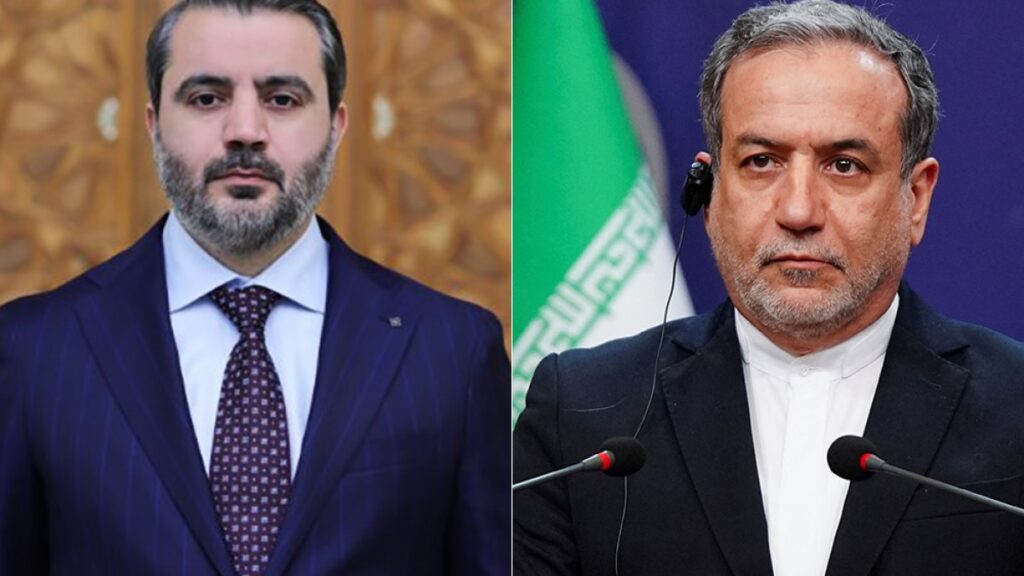
Iran’s top diplomat said it was too early to judge Syria’s future because many developments could affect it after his counterpart in the emerging Syrian government harshly criticized Tehran.
“I think it is too early to judge now, both for us and for others who believe that victories have been achieved in Syria,” Iranian Foreign Minister Abbas Araqchi said with a smile in a short clip of an interview posted on his Telegram channel on Wednesday. .
These statements came after the new Syrian Foreign Minister, Asaad Hassan Al-Shaibani, informed Iran that it must respect the will of the Syrian people and the country’s sovereignty and security.
He added: “We warn them against spreading chaos in Syria and hold them responsible for the repercussions of the recent statements,” but he did not specify which statements he was referring to.
Araqchi led Iran’s diplomatic response following the fall of Tehran’s longtime ally Bashar al-Assad, which was to express a desire to maintain bilateral relations while warning that this would depend heavily on the country’s stance toward Israel.
But Supreme Leader Ayatollah Ali Khamenei, who described the events in Syria as a ploy by the United States and Israel – proxyed by neighboring Turkey – used stronger language.
“Syrian youth have nothing to lose. “Their universities, their schools, their homes, their lives are not safe,” he said in a speech earlier this week.
“What can they do? They must stand with all determination against those who planned and caused this insecurity, and they will defeat them, God willing.
The Iranian leader also said that the American design to “dominate” countries is to either create a system they can work with or “chaos and riots.” Khamenei said that the events in Syria led to the latter.
Iran has spent tens of billions of dollars, much of it during the decade-long Syrian civil war, to keep Assad’s government in place with Russia’s help. The Iranian-led “axis of resistance” lost a member and a crucial land supply route to Hezbollah through Syria with the fall of the Assad family.
Khamenei said Iran had been partially repaying the debt to Syria since Hafez al-Assad, the deposed president’s father, helped Iran when it invaded neighboring Iraq in the 1980s by cutting off a vital Iraqi oil pipeline.
The Iranian Supreme Leader stressed that Iran and the region have also made significant gains by fighting in Syria to repel ISIS and other armed groups.
Unconfirmed reports indicate that Syria may be planning to demand billions of dollars in compensation from Iran in international courts.
Last week, Iranian Foreign Ministry spokesman Esmail Baghaei told reporters that claims that Syria owed Iran $50 billion were “exaggerated,” but added that any existing debts would be transferred to the country’s new leadership based on the principle of state succession.
In addition to its investments to support its presence in Syria, Iran has also supplied the Assad government with crude oil. Oil exports have now stopped, with the last oil tanker returning to Iran on the day of his ouster.
Internal reorganization and external communications
The hardening stance against Tehran by the new Syrian government comes as Hay’at Tahrir al-Sham leader Ahmed al-Shara, also known as Abu Muhammad al-Julani, and others meet with senior international officials – including from the United States and the European Union. Turkey and Iran’s Arab neighbors – and the reopening of embassies.
Syria’s de facto leader on Tuesday reached an agreement with rebel factions to work together as a single force under the country’s Defense Ministry. The prominent leader of Hay’at Tahrir al-Sham, Murhaf Abu Qasra, was appointed Minister of Defense.
But the US-backed Kurdish-led Syrian Democratic Forces, which have been expelled by Turkish-backed forces from some northeastern parts of Syria, are not part of the deal.
Syrian interim Prime Minister Mohammed al-Bashir said last week that the ministry would be restructured using former rebel factions and officers who defected from Assad’s army.
Meanwhile, Syria’s new rulers are pursuing other members of Assad’s forces, and Al-Sharaa said in a statement that those who killed or tortured Syrians in the past will not be spared.
An unnamed former Assad loyalist was reportedly killed in the Al-Qadam neighborhood of Damascus earlier this week.
Video clips circulating online show armed fighters vowing to fight the Alawites, a Shiite religious minority from which the Assad family descends, most of which are based in Latakia and Tartous on the Syrian coast.





